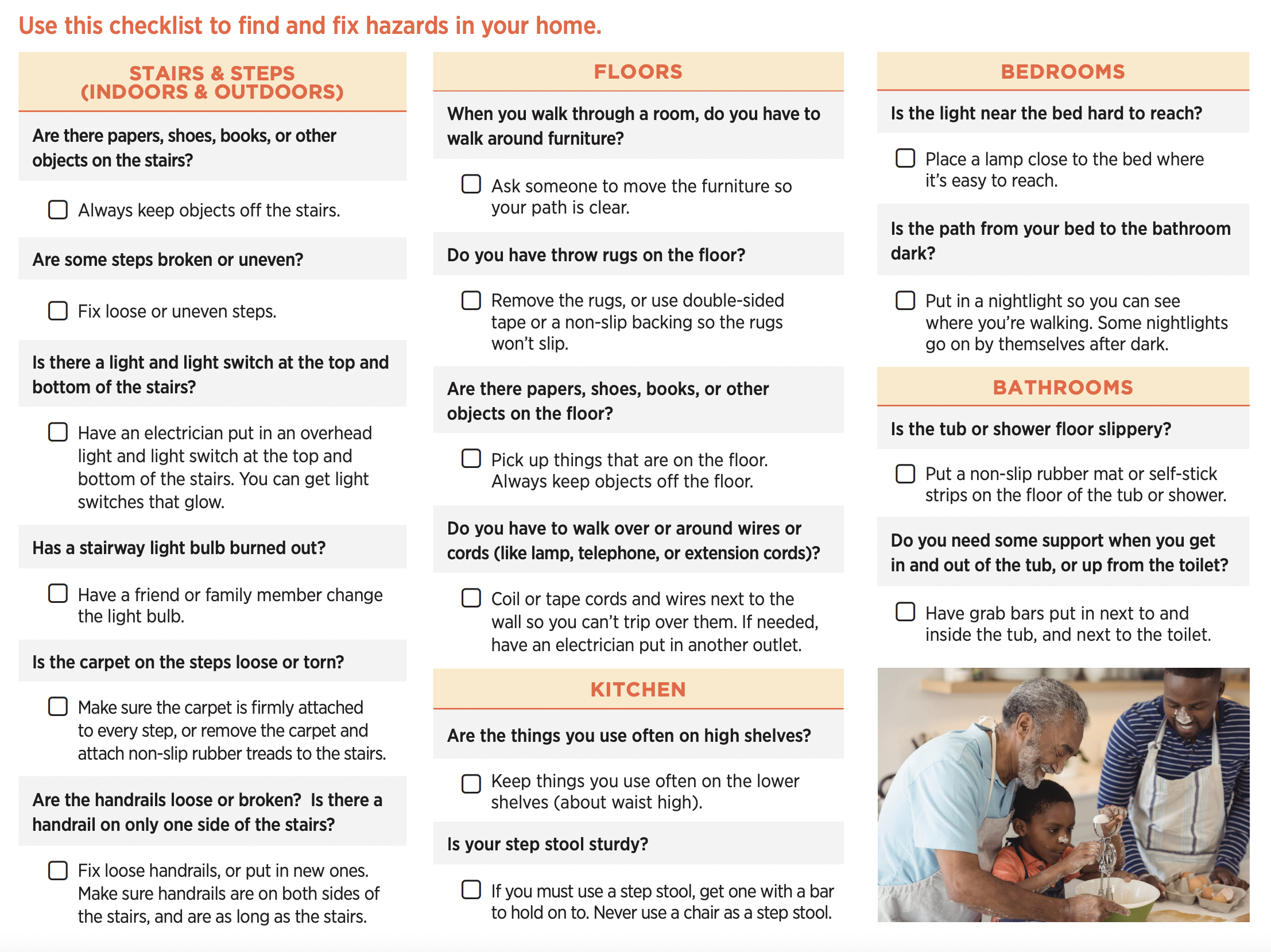Dementia Fall Risk Fundamentals Explained
Dementia Fall Risk Fundamentals Explained
Blog Article
Dementia Fall Risk Can Be Fun For Everyone
Table of ContentsUnknown Facts About Dementia Fall RiskThe Main Principles Of Dementia Fall Risk The Single Strategy To Use For Dementia Fall Risk4 Simple Techniques For Dementia Fall RiskIndicators on Dementia Fall Risk You Need To Know
Ensure that there is a designated location in your clinical charting system where personnel can document/reference scores and document pertinent notes connected to fall avoidance. The Johns Hopkins Loss Risk Assessment Tool is one of numerous tools your team can use to help protect against negative medical events.Patient falls in health centers are common and devastating damaging occasions that continue despite years of effort to lessen them. Improving communication across the assessing registered nurse, care group, person, and client's most included loved ones may reinforce fall avoidance efforts. A group at Brigham and Women's Hospital in Boston, Massachusetts, sought to establish a standard fall avoidance program that focused around enhanced communication and patient and family members involvement.

The technology group highlighted that successful application depends upon client and personnel buy-in, combination of the program into existing workflows, and fidelity to program procedures. The group noted that they are coming to grips with just how to make certain connection in program execution throughout periods of situation. During the COVID-19 pandemic, as an example, a rise in inpatient drops was associated with limitations in patient involvement along with constraints on visitation.
Indicators on Dementia Fall Risk You Need To Know
These cases are typically thought about preventable. To carry out the intervention, organizations need the following: Access to Fall suggestions resources Autumn suggestions training and re-training for nursing and non-nursing personnel, including brand-new registered nurses Nursing workflows that permit for client and household interaction to conduct the falls analysis, ensure use the prevention plan, and carry out patient-level audits.
The results can be very detrimental, commonly increasing individual decline and triggering longer health center remains. One research study estimated stays increased an additional 12 in-patient days after a person fall. The Loss TIPS Program is based on appealing individuals and their family/loved ones across 3 main processes: assessment, individualized preventative interventions, and bookkeeping to make sure that patients are involved in the three-step autumn prevention procedure.
The patient evaluation is based upon the Morse Autumn Range, which is a confirmed autumn risk analysis tool for in-patient healthcare facility settings. The range includes the 6 most common reasons people in hospitals drop: the client fall history, high-risk conditions (including polypharmacy), use IVs and other external gadgets, mental status, gait, and mobility.
Each threat factor relate to one or more workable evidence-based treatments. The nurse creates a strategy that incorporates the treatments and is noticeable to the treatment team, individual, and household on a laminated poster or printed visual help. Nurses develop the plan while meeting with the person and the person's family.
The smart Trick of Dementia Fall Risk That Nobody is Discussing
The poster functions as an interaction device with other participants you can try this out of the person's care team. Dementia Fall Risk. The audit element of the program consists of analyzing the patient's knowledge of their risk factors and avoidance plan at the system and hospital levels. Registered nurse champions carry out at the very least 5 private meetings a month with individuals and their family members to check for understanding of the fall prevention plan

A projected 30% of these drops outcome in injuries, which can range in severity. Unlike other unfavorable events that call for a standardized scientific feedback, loss prevention depends extremely on the needs of the patient.
The Best Strategy To Use For Dementia Fall Risk
.png)
Based on auditing outcomes, one website had 86% compliance and 2 sites had more than 95% conformity. A cost-benefit evaluation of the Loss suggestions program in eight medical facilities approximated that the program price $0.88 per patient to execute and led to savings of $8,500 per 1000 patient-days in direct costs connected to the avoidance of 567 tips over 3 years imp source and eight months.
According to the technology group, organizations curious about applying the program should conduct a readiness assessment and falls prevention spaces analysis. 8 Furthermore, companies must make certain the required facilities and operations for execution and create an implementation strategy. If one exists, the company's Loss Avoidance Job Pressure must be associated with planning.
The Ultimate Guide To Dementia Fall Risk
To begin, organizations must make sure completion of training modules by registered nurses and nursing aides - Dementia Fall Risk. Healthcare facility personnel should assess, based upon the demands of a medical facility, whether to use an electronic wellness document printout go or paper variation of the autumn prevention plan. Carrying out teams ought to hire and educate registered nurse champs and establish processes for bookkeeping and coverage on loss information
Personnel need to be associated with the procedure of redesigning the workflow to engage patients and family members in the evaluation and avoidance plan procedure. Solution needs to be in area to make sure that systems can recognize why a fall took place and remediate the cause. A lot more specifically, nurses ought to have channels to supply recurring feedback to both personnel and device leadership so they can change and boost fall prevention operations and communicate systemic issues.
Report this page